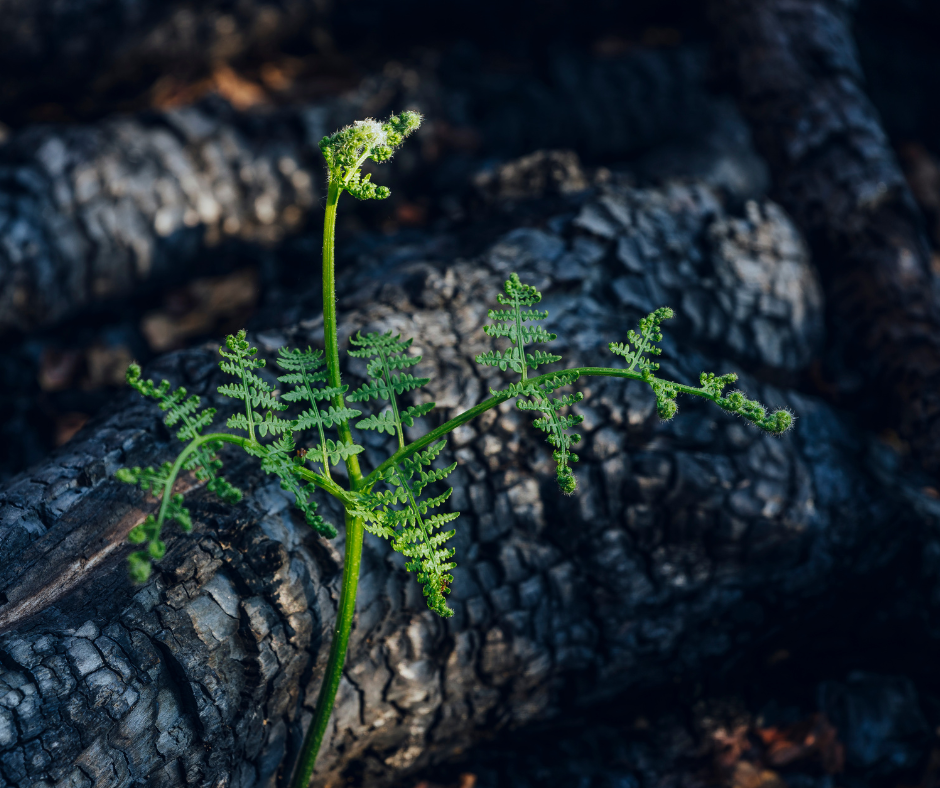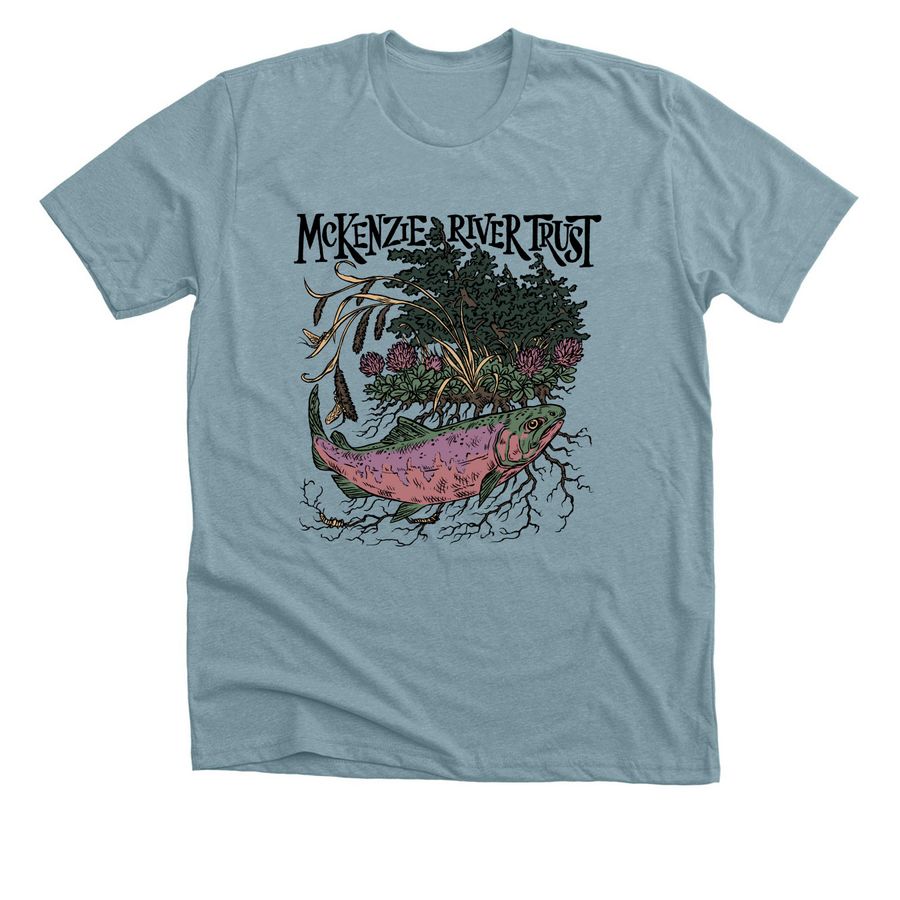Meredith Goehring

We knew it was coming but the ash still surprised us, a startling passage from vivid green into bone grey. No warning, just a sudden muting of the world several miles into the trail. Tragedy.
I am shocked, suddenly winded, reminded of the sensation of lost love; the same breathless abandonment at finding there is no color on the ridges receding out to the horizon, no matter how high you go or how far you strain to see.
We are trekking up Foley Ridge Trail into the Three Sisters Wilderness, intent on finding our way to an alpine lake. We knew we would hike through a burn but we couldn’t get permits for another trail and, anyway, any day in the mountains with a packs on our backs is a good day.
But even several years after the fire the scar has not softened, much. The soot swirls and clings skirt-like to our legs. The bones of the trees are everywhere, lying across the trail, sometimes in piles of two or three. It is hard going, especially with a heavy pack, and it keeps going, upward, for miles. The rough trunks we scramble over score our ankles with smarting gashes and I think about how easily pain multiplies.
…
I am new to the Northwest, but not to forests. No matter where we moved my parents found us trees and took us to them; I grew up finding relief in treecover, in mountains. They are a haven I seek when I am tired of bone or of soul.
What beckons to me from the green places is a sense of time’s mastery. Here, at least, I can believe in the long arc of a placid world in which everything will, given time, bloom. Here remains something unbroken; balance, safety.
…
I have known fire, growing up on the West Coast. It was there, off to the north or east most summers; hazy, taxing, distant.
Then once, living in Arizona, someone led me down into the most beautiful river valley I had ever seen, down to a waterfall in a peaceful grotto and I climbed out in love with it and with them. The next summer, the same valley burned to raw stone in a matter of days.
I watched the progress of the fire online, its graphed edges approaching and then overtaking the clear blue creek where we swam in the Southwest’s late autumn sun. Since then, I have not camped anywhere without wondering when will this burn, too? Which is inevitable, loss or safety? What is certain, assured?
In my mind’s eye I see the valley, its steep, rusty ridges and swaying cottonwoods, each leaf a tiny, bright green flame.
…
We continue upward. The trail beckons, though it has turned to ash and regularly threatens to disappear. Dread, though I do my best to fight it. What if we never reemerge into green? I know that mine is one small gaze on one tiny moment in the history of this forest, a history that arcs far beyond my witness, but all I can see is desolation.
…
Disaster stalks time like its prey; a friend’s father goes quickly from a brain tumor, another’s baby lies gasping in the NICU, and yet another suffers an inexplicable cardiac event at 25 and dies quietly while I, unaware, plan my wedding just one city away. I visit loved ones in hospitals and leave without them, watch my husband’s sister slip away gram by gram. Move forward at all, love or hope for anything at all, and tragedy on its padded feet will be sure to pounce just when you have closed your eyes to enjoy the sun.
Walking through this scorched forest, time no longer seems like anything but a victim of the flames, and us with it. I wish I could return to the forests of my childhood that never seemed threatened by anything worse than a little rain to wash out our camping trip.
…
Nearing the top of our climb, a cluster of douglas fir huddles around a nascent pond, the shade and moisture just enough for tender grass to reemerge. We see another such oasis, and then another, and then one whole wrinkle of ridgeline that lies untouched, greener than green.
Just a little farther and a meadow suddenly opens before us, glowing with life. It flickers with wildflowers and we let the stream lead us to the lake we were seeking. We watch ducklings no bigger than apricots, fuzzy and sweet, scamper through the shallows as the sun sinks into the west.
It is easy to think in endings, to say: this is a tragedy, how can this be? Everything has gone up in flames and we cannot recover. We must either give up or start again.
It is harder to inhabit the in-between, and yet the work of becoming anything — older, wiser, greener — requires most often nothing more than the costly determination to carry on, to grow back.
How much better to say: here we are, between disasters, and look, not everything is lost — how will we move forward, for now? The hardy world does this instinctively – see the fireweed and humble ferns that dare to unfurl. Note the shrubs with life pulsing in their roots that will, given time, bloom. Watch the insects returning, quietly, making this place a home again.
So we wash the grime from our legs and pitch a tent between the quiet trees, watching every shade of rose stain the evening sky. Soon we will head back down through the ashen world but for now see the velvet shadows seep across the meadow, watch the stars flicker on like they have done for millennia, embers of constancy in the world of night.






